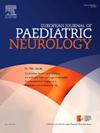Determinants of long-term health-related quality of life in paediatric traumatic brain injury
IF 2.3
3区 医学
Q3 CLINICAL NEUROLOGY
引用次数: 0
Abstract
Introduction
Information on health-related quality of life (HRQoL) after traumatic brain injury (TBI) for paediatric patients is scarce. Therefore, the aim of this study was to determine HRQoL and its risk factors in children several years after TBI.
Methodology
Data were obtained from a prospectively follow-up cohort study of paediatric TBI patients (aged 0–18 years) admitted to the emergency department of the UMCG between 2008 and 2016. Long-term HRQoL was measured by the PedsQL 4.0 questionnaire. Patient and trauma characteristics were collected from digital patient files and posttraumatic complaints were evaluated by a health questionnaire.
Results
416 children completed the PedsQL and the health questionnaire (17 % minor TBI, 65 % mild TBI, 8 % moderate TBI, and 10 % severe TBI). 52 % Of the children experienced long-term concentration problems, 52 % headache problems and 39 % memory problems. Memory problems were more present in the moderate-severe TBI group (p < 0.01). The mean total PedsQL score for the total group of children was good: 84.8 ± 13.3 (SD) with a comparable score for parent-proxies (84.5 ± 14.0). Lower HRQoL was associated with lower GCS score at the ED (B 0.31 (95% CI 0.02 to 0.59)), posttraumatic memory problems (B −6.97 (95% CI -9.66 to −4.28)), concentration problems (B −6.76 (95% CI -9.36 to −4.15) and headache (B −4.06 (95% CI -6.33 to −1.78)).
Conclusions
Most paediatric TBI patients score their HRQoL as good several years after injury despite posttraumatic cognitive complaints and headache experienced by half of the patients. These complaints and lower GCS score have a negative influence on HRQoL.
儿童外伤性脑损伤患者长期健康相关生活质量的决定因素
关于儿童创伤性脑损伤(TBI)后健康相关生活质量(HRQoL)的信息很少。因此,本研究的目的是确定创伤后几年儿童的HRQoL及其危险因素。方法:数据来自一项前瞻性随访队列研究,研究对象是2008年至2016年间在UMCG急诊科住院的儿科TBI患者(0-18岁)。采用PedsQL 4.0问卷测量长期HRQoL。从数字患者档案中收集患者和创伤特征,并通过健康问卷评估创伤后投诉。结果:416名儿童完成了PedsQL和健康问卷(17%为轻度TBI, 65%为轻度TBI, 8%为中度TBI, 10%为重度TBI)。52%的儿童出现长期注意力问题,52%出现头痛问题,39%出现记忆力问题。结论:大多数儿童TBI患者在损伤后几年的HRQoL评分良好,尽管有一半的患者出现创伤后认知障碍和头痛。这些抱怨和较低的GCS评分对HRQoL有负面影响。
本文章由计算机程序翻译,如有差异,请以英文原文为准。
求助全文
约1分钟内获得全文
求助全文
来源期刊
CiteScore
6.30
自引率
3.20%
发文量
115
审稿时长
81 days
期刊介绍:
The European Journal of Paediatric Neurology is the Official Journal of the European Paediatric Neurology Society, successor to the long-established European Federation of Child Neurology Societies.
Under the guidance of a prestigious International editorial board, this multi-disciplinary journal publishes exciting clinical and experimental research in this rapidly expanding field. High quality papers written by leading experts encompass all the major diseases including epilepsy, movement disorders, neuromuscular disorders, neurodegenerative disorders and intellectual disability.
Other exciting highlights include articles on brain imaging and neonatal neurology, and the publication of regularly updated tables relating to the main groups of disorders.

 求助内容:
求助内容: 应助结果提醒方式:
应助结果提醒方式:


